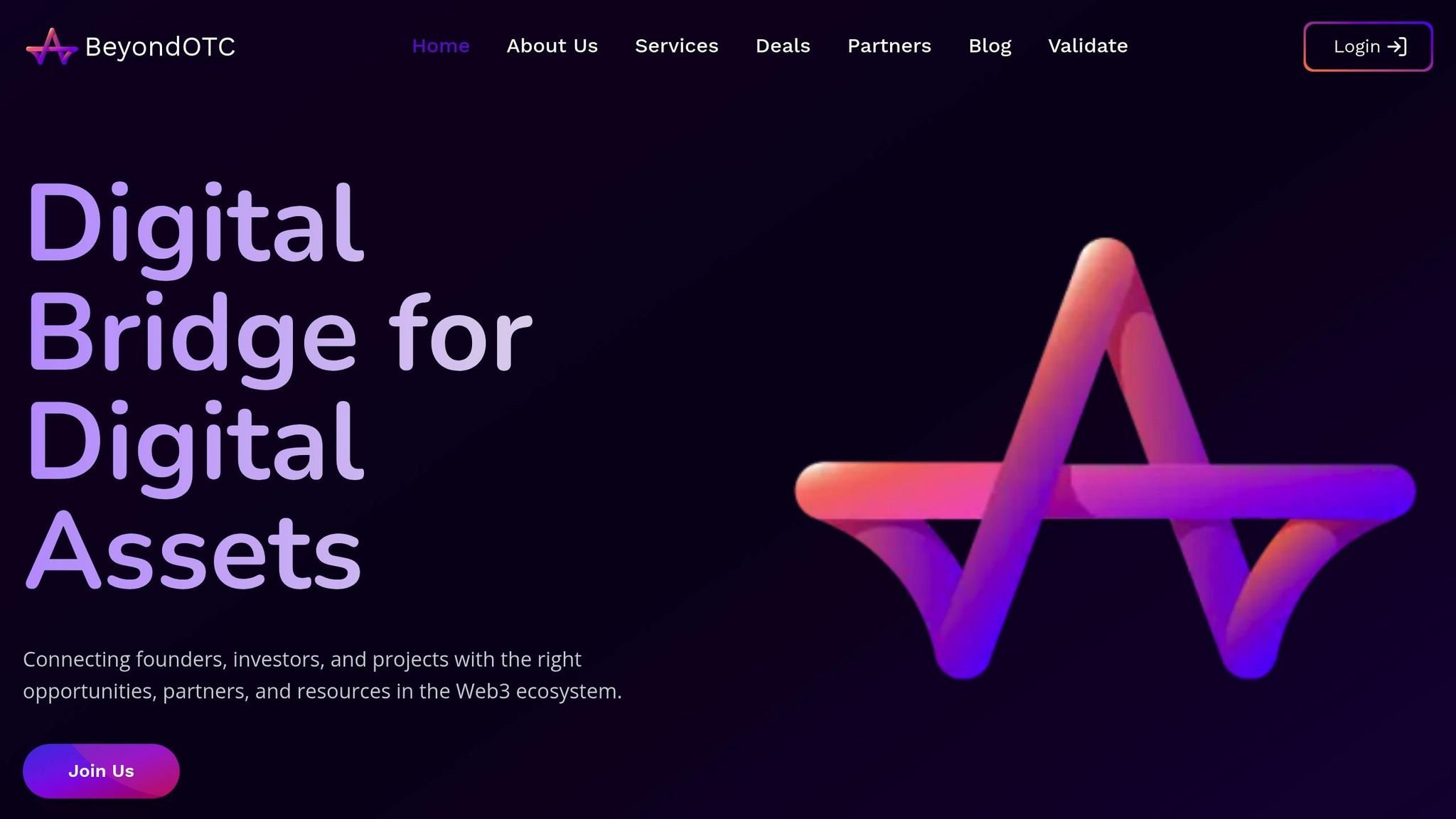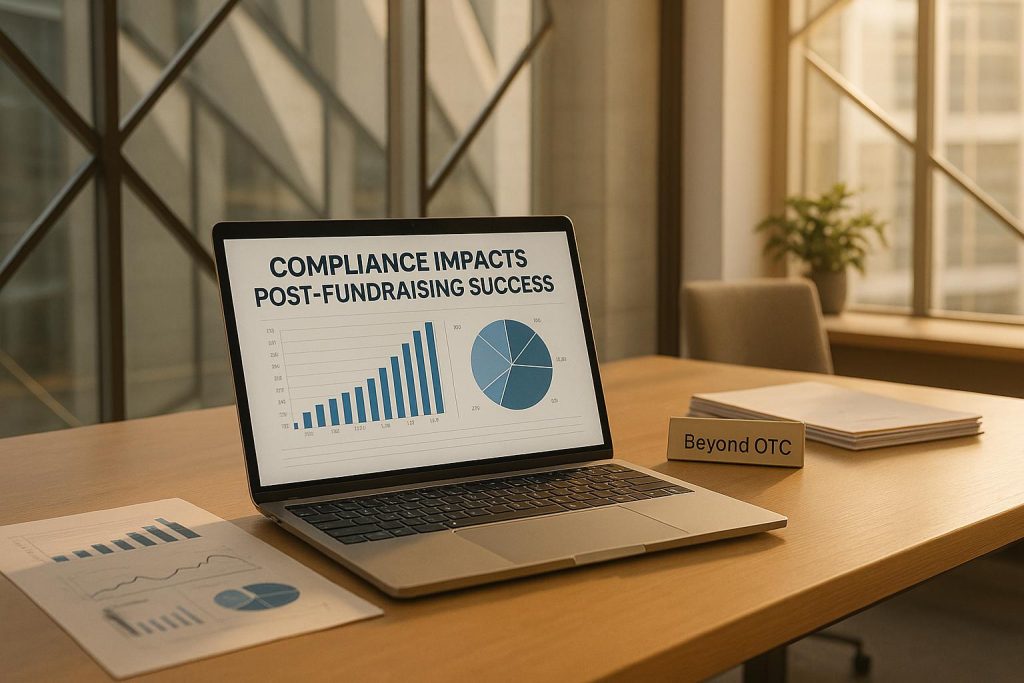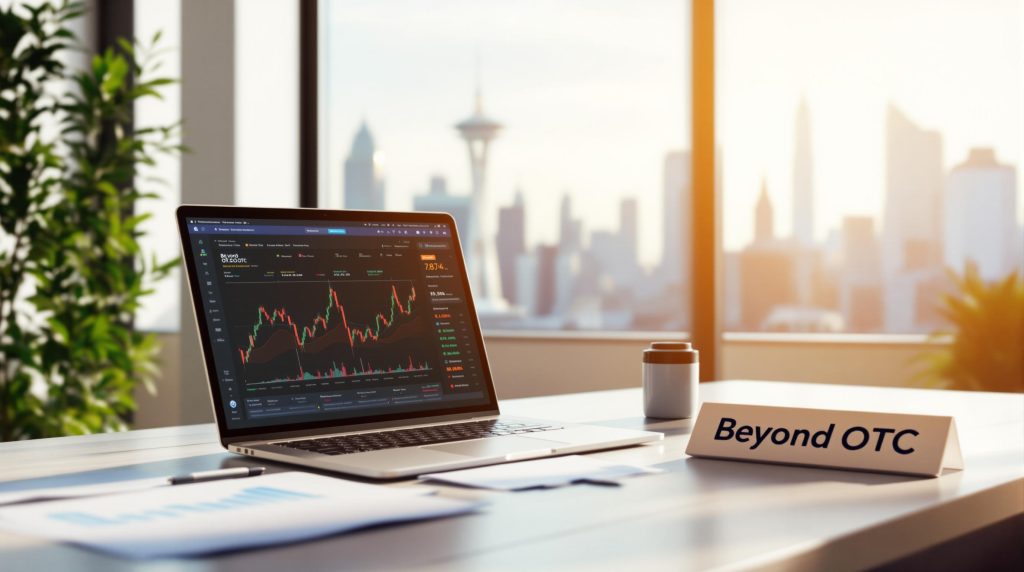Post-trade settlements in OTC cryptocurrency transactions ensure secure and efficient asset transfers between parties. Here’s what you need to know:
- Purpose: Settlements reduce counterparty risk, maintain privacy, and allow customized agreements for high-value trades.
- Steps: Verification of trade details, KYC/AML checks, asset transfers, post-settlement reconciliation, and compliance documentation.
- Key Players: OTC desk teams, custodial providers, compliance officers, and banking partners.
- Tools Used: Custody platforms, SWIFT systems, APIs, on-chain analytics, and automated compliance tools.
- Risks Managed: Counterparty defaults, operational errors, and market volatility through robust infrastructure and global networks.
Quick Takeaway: OTC desks like BeyondOTC streamline settlements by combining advanced tools, global networks, and strong risk management, having facilitated $305 million in transactions to date.
What is OTC Trade Life Cycle? | OTC Trading Explained with …
Settlement Process Participants and Tools
Once liquidity and pricing are established, the settlement process involves a network of specialists and systems working together to ensure everything runs smoothly. BeyondOTC relies on this framework to maintain the integrity of each settlement.
Key players in post-trade settlements include OTC desk operations teams, custodial providers, compliance officers, and banking partners. These participants use a mix of tools, such as institutional custody platforms, SWIFT messaging systems, API-based transaction rails, on-chain analytics, and automated compliance tools, to handle their tasks efficiently.
Here’s a closer look at the roles, tools, and compliance measures involved in the process.
Settlement Steps and Procedures
Here’s how the settlement process typically works, step by step:
-
Initial Trade Verification
The first step is confirming the identities of all involved parties and ensuring the trade details align. This includes verifying trade amounts, pricing, and matching details between the parties. -
Pre-Settlement Checks
Before moving forward, key verifications take place: completing KYC (Know Your Customer) and AML (Anti-Money Laundering) checks, assessing counterparty risk, verifying balances, and confirming custody arrangements. -
Settlement Execution
This is where the actual transfers happen. Cryptocurrency is sent to custodial wallets, fiat payments are processed through specific payment channels, and transaction confirmations are closely monitored to ensure smooth execution. -
Post-Settlement Actions
After settlement, all transfers are reconciled, internal ledgers are updated, and settlement confirmations are generated. Transaction records are archived, and notices are sent to all involved parties to confirm completion. -
Final Documentation
The last step involves recording timestamps for the settlement, storing compliance-related documentation, updating trade reporting systems, and filing any necessary regulatory reports.
Throughout this process, both automated systems and manual checks work together to maintain accuracy and security. Custody and clearing services ensure everything runs smoothly, while payment systems handle multi-currency transactions efficiently.
sbb-itb-7e716c2
Managing Settlement Risks
After completing settlements, desks must actively identify and address potential risks. Proper controls are essential to protect assets and ensure smooth transactions.
Common Settlement Risks
Here are some risks that can arise during settlements:
Counterparty Risk
- Failure to deliver assets or default by the trading partner
- Delayed payments or asset transfers
- Financial instability of counterparties
Operational Risks
- Issues like system outages, human mistakes, or communication failures
Market Risks
- Sudden price changes, currency fluctuations, or liquidity shortages
Addressing these risks requires a mix of proven methods and tailored strategies, which we’ll explore next.
Risk Prevention Methods
Modern OTC desks tackle risks through several measures, including:
- Access to large liquidity pools
- Custom trading algorithms for efficient execution
- Round-the-clock trading support
- Multi-currency settlement options
- Integration of real-time market data
BeyondOTC enhances these measures with its proprietary systems and global operations.
BeyondOTC‘s Risk Management

With a history of managing $305 million in transactions, BeyondOTC has developed a robust approach to risk management:
Advanced Trading Infrastructure
- A global network covering over 50 countries, offering deep liquidity
- Specialized risk teams utilizing proprietary transaction data
- Automated monitoring tools, complemented by human oversight
Settlement Security
- Multi-layer verification processes
- Tools for real-time risk evaluation
- Detailed audit trails for transparency
This approach provides institutional clients with secure, efficient settlements while adhering to strict regulatory standards.
Benefits of OTC Settlements
Institutional trading desks gain advantages in execution speed, flexibility, and market access while maintaining security through strict risk controls. By safeguarding assets, these desks can enjoy these benefits without compromising safety.
Speed and Efficiency
Custom algorithms and around-the-clock support make it possible to execute large trades quickly, no matter the time zone.
Tailored Solutions
Traders handling significant volumes can take advantage of flexible settlement terms, personalized schedules, and custom algorithms to handle complex transactions seamlessly.
Comparing OTC and Exchange Settlements
OTC settlements provide several advantages over exchanges, including:
- Access to extensive liquidity pools
- Negotiated pricing directly between parties
- Execution of large block trades
- Settlement across multiple currencies and borders
- Entry to international markets
These features make OTC settlements the preferred choice for handling large-scale, intricate trades.
Conclusion
Effective OTC post-trade settlements depend on advanced algorithms, strong risk management, and around-the-clock support. These elements ensure smooth execution of high-volume trades across various currencies and regions.
BeyondOTC links institutional clients with trusted OTC desks and liquidity providers, simplifying settlements through a global network that covers over 50 countries. As OTC markets continue to grow, implementing these practices is crucial for institutional players.
BeyondOTC facilitated over $250 million in Bitcoin and $55 million in altcoin transactions.




